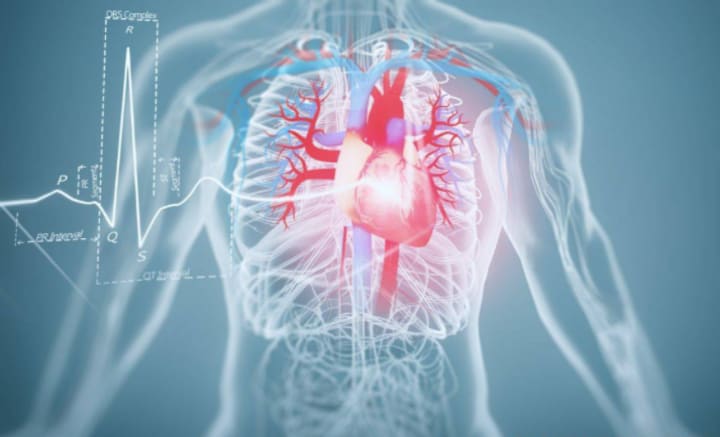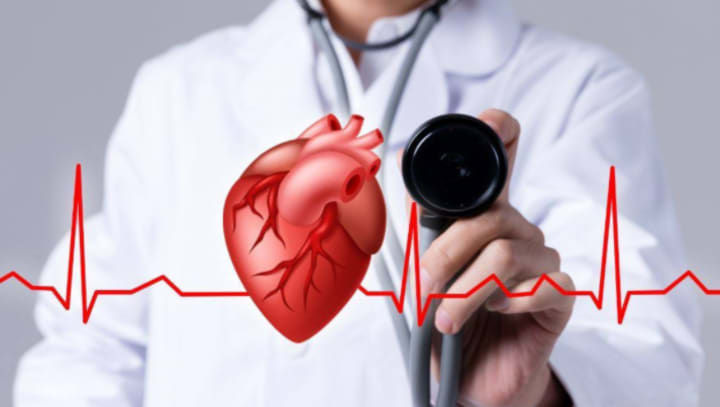Signs before sudden death
Can save lives at critical moments

In recent years, sudden deaths have occurred frequently, and a fresh life can be claimed in a short period of time.
Sudden death is divided into sudden cardiac death and non-cardiac sudden death. Cardiogenic refers to the onset of cardiovascular disease. Sudden cardiac death accounts for more than 80% of non-accident sudden deaths. Non-cardiogenic factors include overwork, alcoholism, drug use, and strenuous exercise.
The important pathogenesis mechanism of sudden cardiac death is fatal arrhythmia-ventricular fibrillation and ventricular arrest. Hypertension, smoking, drinking, excessive excitement and nervousness may all be related to the occurrence of sudden death. Sudden death is 6 months after birth, and the two peak periods are between 30 and 50 years old.
Although sudden death is mostly sudden and difficult to prevent and control, before sudden death, the body will send a life-saving signal, but most people ignore it! !
What are the signs before sudden death?
Although there are no obvious abnormalities before sudden death, most people often have palpitations, irritability, precordial discomfort, and precordial pain.
On hot days in summer, especially in the morning, capillaries are dilated, sweating is excessive, and organ blood volume is relatively insufficient, which is more likely to cause myocardial ischemia and sudden death. In summer, if you have the following symptoms, you should pay special attention.

Symptom 1: Chest tightness that has appeared or worsened recently
If you suddenly experience chest tightness after activity in the near future, rest for a period of time can relieve it. This phenomenon indicates that you may have coronary heart disease. Sudden symptoms indicate that the atherosclerotic plaques in the coronary arteries are not stable and may rupture at any time, leading to acute myocardial infarction.
If you have occasional symptoms of chest tightness in the past, and the recent symptoms have become more frequent and more severe, it also shows that the previously stable plaque has a small damage and will develop into a large damage at any time, leading to acute myocardial infarction occur. In this case, you should go to the hospital as soon as possible and receive medication or surgery.
Symptom 2: When the room temperature is normal, the hands and feet are suddenly cold
When the room temperature is normal and there are no other conditions, rubbing hands is mostly because blood circulation becomes poor after heart problems, hands and feet are cold, and you will seem to "unconsciously" rub your hands to keep warm. In fact, it is an alarm of impending heart problems. signal!
Sign three: flustered
Palpitations are often the subjective feelings of increased heart rate. Unscheduled heart rate increases are usually the result of tachyarrhythmias. Most arrhythmias are less dangerous and will not cause sudden death, but if it is frequent ventricular arrhythmia, there is a risk of developing ventricular fibrillation.
In addition, atrial fibrillation is the cause of palpitation in many elderly people. If atrial fibrillation is accompanied by heart conduction disease, it is easy to progress to ventricular fibrillation. After an onset of ventricular fibrillation, death can occur within a few minutes. Therefore, frequent heart attacks should also be treated promptly.
Sign four: earlobe folds
You can pay more attention to your earlobe when you look in the mirror at home. If you find that there is a diagonal crease in the earlobe, it is recommended to go to the hospital to check the heart and blood vessels in time.

American medical scientists discovered during autopsy that almost all people who died of coronary heart disease had a wrinkle on the skin of the earlobe. This earlobe fold is also called coronary sulcus and cerebral arteriosclerosis earfold sign in our country.
Sign 5: Accelerated heartbeat for no reason
Without any incentives, I suddenly found that my heartbeat was speeding up for no reason, and the duration was between 1 minute and 10 minutes. And it often appears after physical activity, emotional agitation, or over-satisfaction. Be alert that this may be an indication of myocardial infarction from the body.
Sign 6: Black eyes and numb limbs
Stroke is also an important cause of sudden death. Some strokes have a sudden onset, and within a few minutes, paralysis of the limbs and increased blood pressure can occur. In this case, the patient can save lives if he sees a doctor in time. However, some strokes have a slow onset, with only mild symptoms in the early stages, and the patient does not care. Once it progresses, it may cause sudden death, so you need to pay more attention.

Especially in patients with hypertension, coronary heart disease or atrial fibrillation, the incidence of stroke is several times higher than that of the general population. If you cannot see things on one side, numbness or weakness on one side of your limbs, or you are unsteady in walking, or have a feeling of stepping on cotton, you should be alert to the occurrence of stroke and seek medical treatment in time. Early recognition can often achieve better results. To discover the above-mentioned precursors of sudden death, we need to be alert to physical discomfort at all times, react quickly when something happens, and seek medical attention in time.
At the same time, try to make the following adjustments, not only to prevent sudden death, but more importantly, to make up for your overdraft health and live a healthy life for yourself and your family.
1. Comprehensive physical examination 2. Scientific diet and balanced nutrition 3. Adhere to scientific and reasonable exercise 4. Develop a good life pattern 5. Do a good job of emotional management






Comments
There are no comments for this story
Be the first to respond and start the conversation.